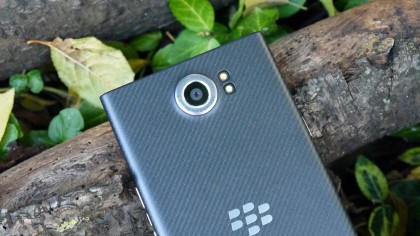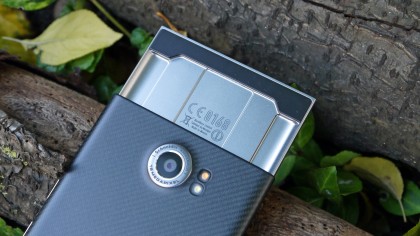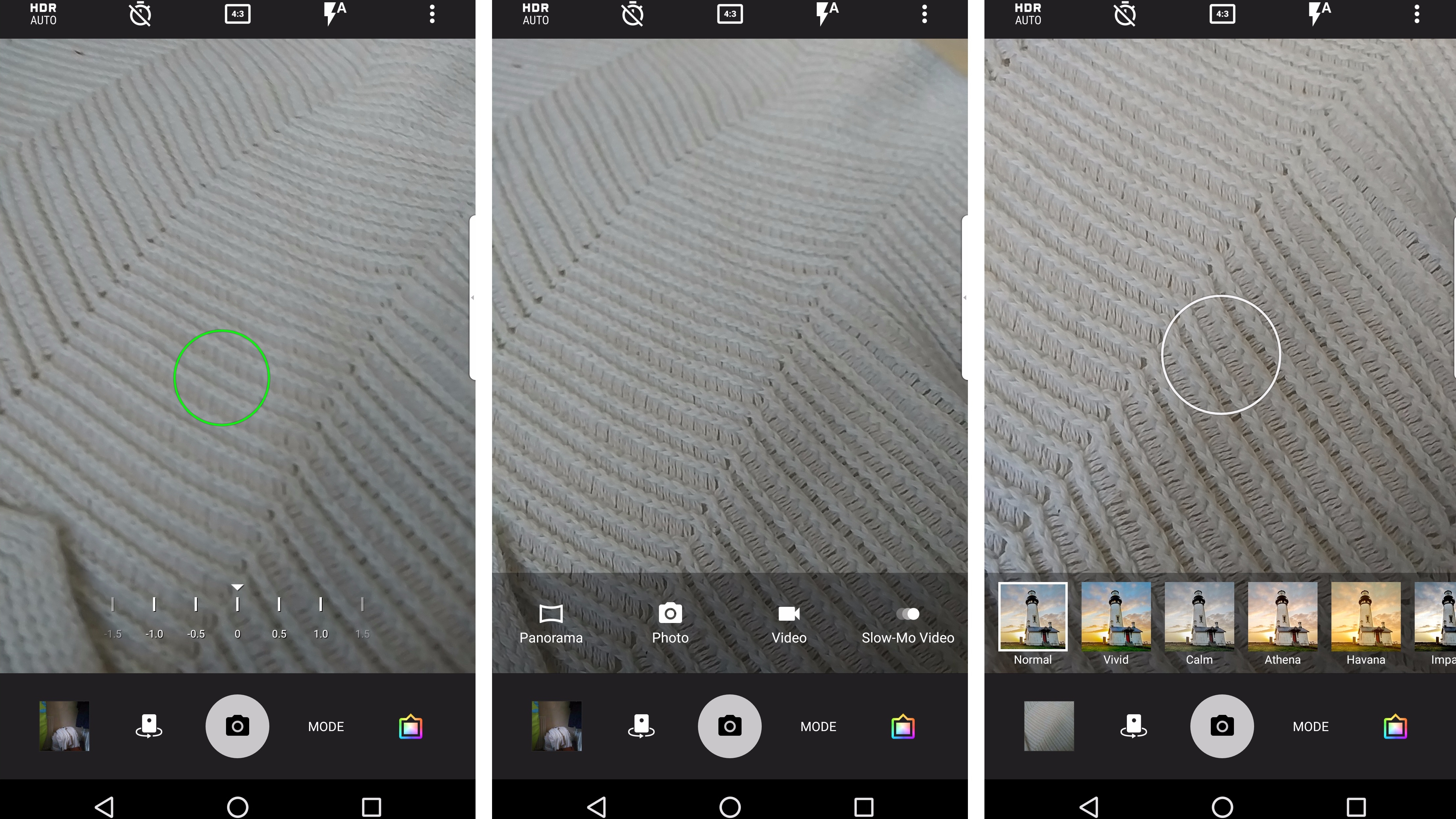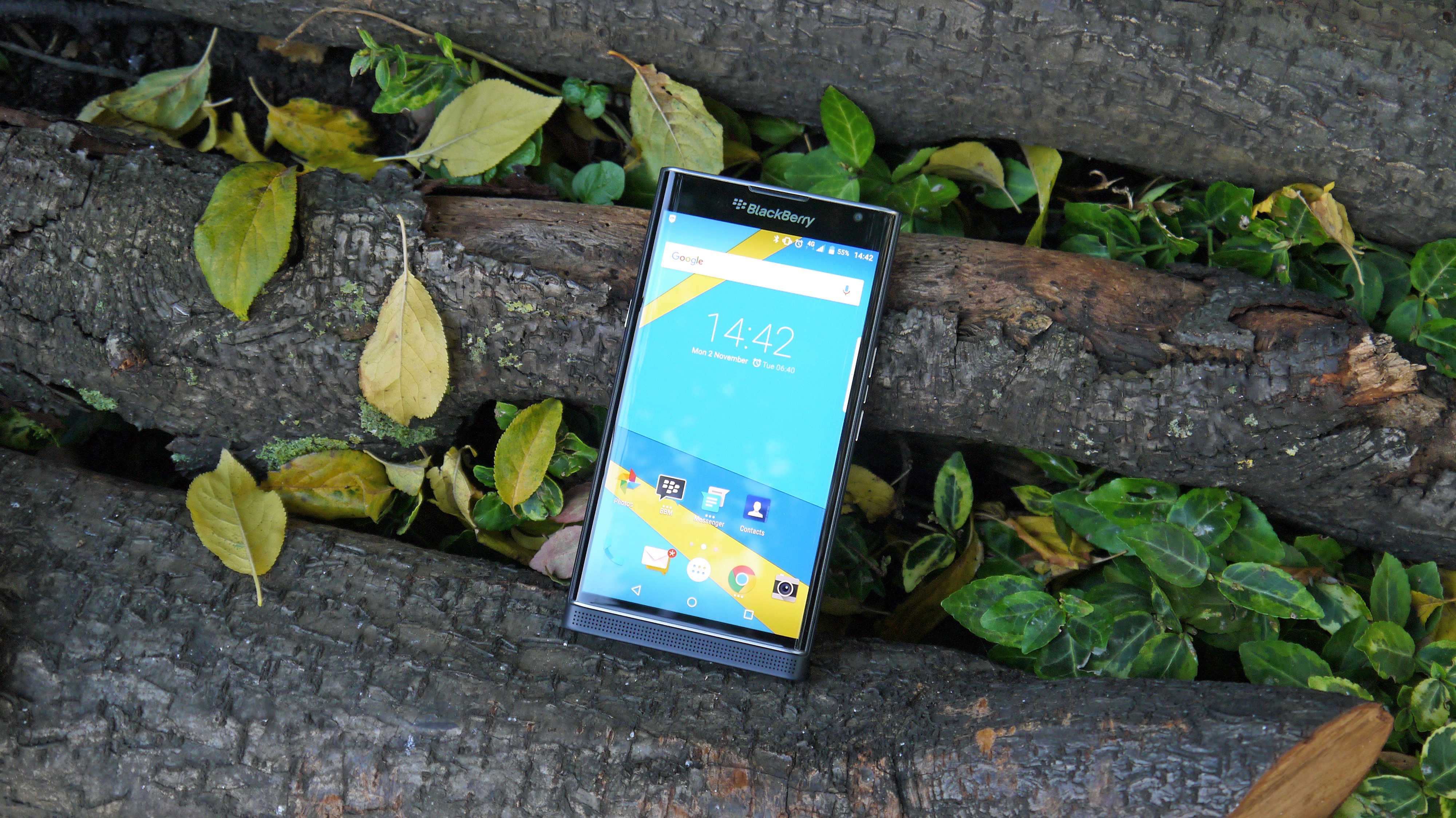Why you can trust TechRadar
One of BlackBerry's core focuses for the Priv is the camera, and it's equipped the handset with an 18MP Schneider Kreuznach sensor on the rear.
The camera itself is a sizable presence on the back of the Priv, protruding from the tensile weave back cover and accompanied by a dual-LED flash to one side. BlackBerry highlights the DSLR-like qualities of the Priv's camera, which boasts a high frame rate and fast focusing.
The Priv's camera app is a relatively straightforward affair, with a distinct shutter key flanked by a camera switch key, gallery link, mode select and 'live filters' to add some Instagram glam to your shots.

At the top of the display is another menu bar with toggles for the flash, HDR mode, aspect ratio, time and advanced settings menu. There's not a huge array of options in the advanced menu, with toggles for picture quality, video resolution, geo-location tags and the option to save images to a microSD card.
You do get some control over your shots though, with tap-to-focus present and an exposure slider at the base of the viewfinder, which is especially useful when shooting at night.
Dive into the camera modes and again BlackBerry has kept things fairly minimal on the Priv, with video and panorama your main options - plus the addition of slo-mo video with the Android Marshmallow update.

Head into video mode and you can choose from 720p, 1080p or 4K recording, enabling you to shoot satisfying footage with the Priv; it won't be Oscar-winning quality, but it won't let you down when you play it back on your computer or TV.
Sign up for breaking news, reviews, opinion, top tech deals, and more.
Talking of Oscars, the Android Marshmallow update has brought with it the ability to record 4K video at a movie-like 24fps. Alternatively, as I just mentioned, you can now crank things right up to 120fps at 720p and slow a portion of your choosing right down during playback. It's similar to Apple's execution on the iPhone 5S and subsequent smartphones, but not quite as slick.
Going back to shooting photos, the BlackBerry Priv's rear camera performs well. I was able to capture both highly detailed close-ups and well-focused landscapes with ease.
I was impressed with the camera's low light capabilities when I dropped the exposure at night, although indoor shots under poor lighting can end up looking rather grainy.

The camera was sluggish at times though, and I experienced a delay between hitting the shutter and snapping a photo, and a further delay in saving the image, on more than one occasion. Tapping to view your image back is also accompanied by an irritating delay.
BlackBerry has improved the speed of the Priv's camera app a little since launch, but it still isn't as responsive as we'd expect from a modern flagship phone.
The front-facing 2MP camera is serviceable, but don't expect anything special from it. For the odd selfie or video chat it's fine, but it can't hold a candle to the front-facing snappers on some of the Priv's rivals.
I was pleasantly surprised by the main camera on the Priv, though. Historically BlackBerry has struggled to put decent cameras in its smartphones, but that's not usually been a huge issue due to the firm's focus on business users.
An Android device needs a strong camera though, and the Priv doesn't disappoint. It's not the best smartphone snapper on the market, but it'll take great shots the majority of the time.

TechRadar's former Global Managing Editor, John has been a technology journalist for more than a decade, and over the years has built up a vast knowledge of the tech industry. He’s interviewed CEOs from some of the world’s biggest tech firms, visited their HQs, and appeared on live TV and radio, including Sky News, BBC News, BBC World News, Al Jazeera, LBC, and BBC Radio 4.
